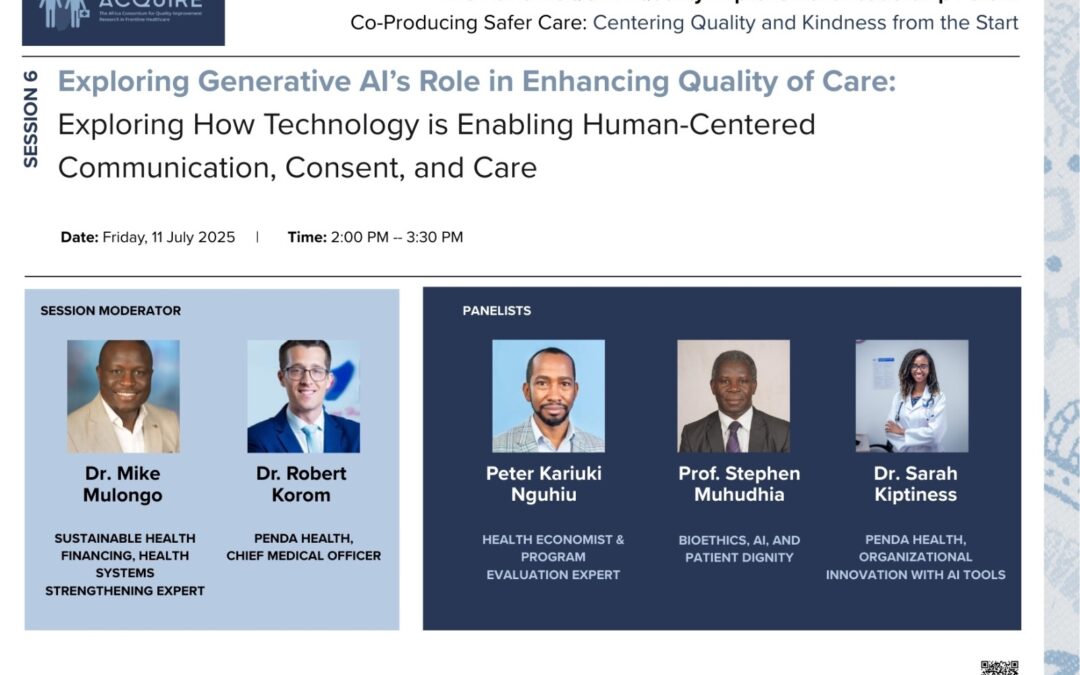The ACQUIRE Forum's sixth session on July 11th explored how artificial intelligence has potential to enhance the human elements of healthcare. It also addressed ethical considerations relating to patient dignity and human relationships.
AI as Healthcare Assistant
Dr. Robert Korom from Penda Health outlined three AI categories transforming healthcare delivery. Administrative tools like ambient scribes turn conversations into medical notes, freeing clinicians from computer screens. “Instead of your doctor tap, tap, tapping away, there’s a microphone sitting silently, turning conversation into medical notes,” Korom explained. Clinician-facing tools provide decision support, while patient-facing applications offer new opportunities for personalized health education in local languages.
Real-World Implementation
Dr. Sarah Kiptiness showcased Penda’s AI Consult system, which guides clinicians through decision-making in real-time. The system uses color-coded alerts: red for life-threatening issues requiring immediate attention, yellow for guidance on non-critical matters, and green for confirmation of appropriate care. “It takes two minutes longer, but it’s two minutes that can save a patient’s life,” Kiptiness emphasized, noting 90% adherence to evidence-based guidelines compared to Kenya’s 40% average.
Ethics: Complexities and Opportunities
Professor Stephen Muhudhia raised challenging questions about AI’s role in healthcare relationships. “Ethics is about reflection—asking whether our decisions are right and why,” he emphasized. While AI can free healthcare workers from routine tasks, critical dilemmas emerge: Who bears responsibility when AI-guided decisions go wrong? “If something goes wrong because you acted on AI guidance, who is accountable—the doctor, the AI developer, or the manufacturer?” Muhudhia questioned. He stressed that patient dignity requires genuine human connection and that healing requires empathy and trust that AI cannot provide.
Dr. Peter Mutisya added practical insights about AI’s analytical power, noting how his team completed comprehensive baseline surveys and policy analysis in record time using AI tools, while cautioning about the need for “human in the loop” quality checks to prevent algorithmic bias and ensure ethical data handling
Next Up:
The forum concludes with a scientific poster session celebrating frontline innovation and quality improvement projects across African healthcare systems.

